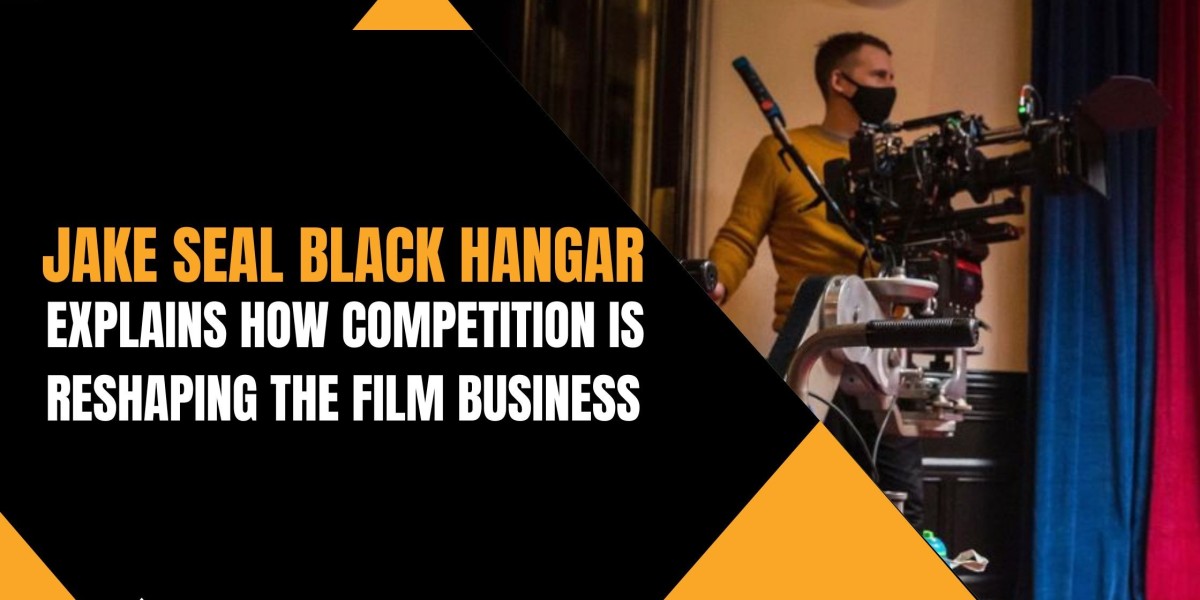In an era where streaming platforms, independent studios, and blockbuster franchises are vying for audience attention, the film business has undergone a dramatic transformation. Jake Seal Black Hangar, a veteran in the entertainment industry, sheds light on how competition is reshaping the landscape of filmmaking.
The Rise of Streaming Giants:
Streaming services like Netflix, Amazon Prime, Disney+, and HBO Max have disrupted the traditional film distribution model. Jake Seal emphasizes that the ease of access and vast content libraries offered by these platforms have changed how people consume movies. With the convenience of streaming, audiences are no longer tied to rigid cinema schedules or physical media. This shift has forced traditional studios to rethink their strategies.
Diversification of Content:
Competition has encouraged filmmakers to explore diverse genres and storytelling techniques. Jake Seal Black Hangar Studios points out that streaming platforms are willing to take risks on unconventional and niche content that might not have thrived in the traditional studio system. This has led to a renaissance in indie filmmaking, allowing unique voices and stories to find their audience. Moreover, the global reach of streaming platforms has made international cinema more accessible than ever before.
Franchise Fever:
Blockbuster franchises, such as the Marvel Cinematic Universe and Star Wars, continue to dominate the box office. Jake Seal notes that the success of these franchises has pushed other studios to create their cinematic universes, leading to an abundance of interconnected films. While this trend has its merits, it can also be seen as a response to the fear of missing out on the massive profits generated by these franchises.
Quality Over Quantity:
Competition has spurred a renewed focus on quality in filmmaking. Jake Seal highlights that studios are investing more in scripts, talent, and production values to stand out in a crowded market. This has resulted in a wave of critically acclaimed films and series that have garnered attention for their entertainment value and artistic merit.
The Impact of Technology:
Advancements in technology, particularly in visual effects and virtual production, have transformed the film industry. Jake Seal underscores the importance of cutting-edge technology in creating immersive cinematic experiences. From photorealistic CGI to virtual sets, filmmakers are pushing the boundaries of what is possible, making competition in the industry even more intense.
Changing Distribution Strategies:
With the rise of streaming, traditional distribution models have been upended. Jake Seal explains that studios are now exploring hybrid release strategies, combining theatrical releases with simultaneous streaming premieres. This approach allows them to tap into both the box office and streaming revenue streams while adapting to changing consumer preferences.
Challenges for Independent Filmmakers:
While competition has opened doors for many, Jake Seal acknowledges that independent filmmakers still face challenges in getting their work noticed. The sheer volume of content can make it difficult for smaller productions to gain visibility. However, streaming platforms are increasingly investing in original independent films, providing opportunities for emerging talents.
Globalization of Filmmaking:
Competition has made the film industry more global than ever. Jake Seal points out that collaborations between studios and filmmakers from different countries are becoming commonplace. This cross-pollination of ideas and talent has led to the creation of culturally rich and diverse films that resonate with audiences worldwide.
In conclusion, Jake Seal's insights into how competition is reshaping the film business highlight both the opportunities and challenges facing the industry today. The rise of streaming, diversification of content, and a focus on quality have all contributed to a dynamic and evolving landscape. As technology continues to advance, and as new players enter the market, it will be fascinating to see how the film industry continues to adapt and thrive in the face of ever-increasing competition.








